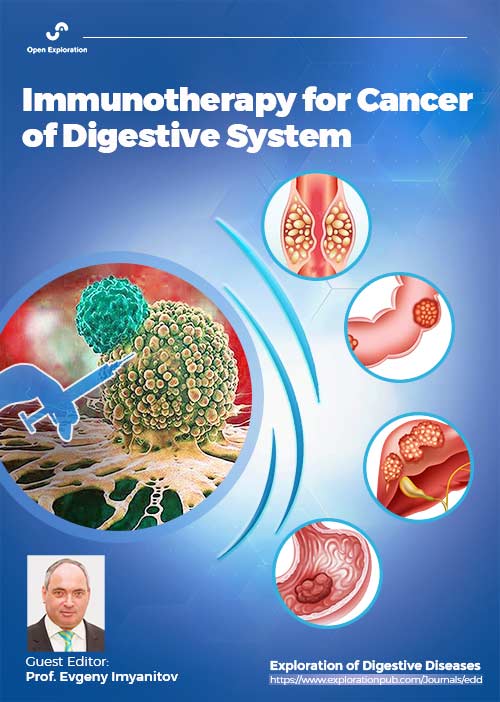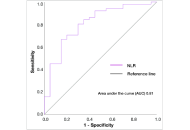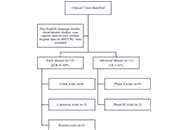
Immunotherapy for Cancer of Digestive System
Guest Editor
Prof. Evgeny Imyanitov E-Mail
Saint Petersburg State Pediatric Medical University, Saint Petersburg, Russian Federation
Research Keywords: immune checkpoint inhibitors, microsatellite instability, mismatch repair deficiency, tumor mutation burden, PD-L1, esophageal cancer, gastric cancer, hepatobiliary cancer, colorectal cancer
About the Special lssue
Immune checkpoint inhibitors (ICIs) have revolutionized cancer treatment. These drugs antagonize immune-suppressive molecules and restore antitumor defense. ICIs are currently utilized for the management of a wide variety of gastrointestinal malignancies, including esophageal, gastric, hepatobiliary and colorectal cancers. The administration of ICIs often relies on the evaluation of predictive markers, particularly microsatellite instability (mismatch repair deficiency), tumor mutation burden and PD-L1 expression. ICIs are being intensively investigated in combination with other anticancer drugs, particularly cytotoxic and targeted agents. This issue is dedicated to the discussion on various aspects of immune therapy for gastrointestinal malignancies.
Keywords: immune checkpoint inhibitors, microsatellite instability, mismatch repair deficiency, tumor mutation burden, PD-L1, esophageal cancer, gastric cancer, hepatobiliary cancer, colorectal cancer
Published Articles

